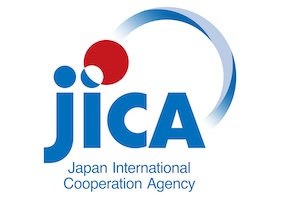| 14 April 2023, Friday (7.00 p.m. – 10.30 pm., Tokyo GMT + 9) | ||
| 19.30 – 19.45 | Opening | |
| Welcome Address by the Chair, Local Organising Committee | Masami Isoda | |
| Address by the President, Japan Society for Mathematical Education | Yoshinori Shimizu | |
| 19.45 – 20.10 | Keynote Address by the President, International Commission on Mathematical Instruction (ICMI) | Frederick K. S. Leung |
| 20.10 – 20.15 | Photo Session | |
| 20.15 – 21.35 | Short Oral Presentations Sub-theme 1 (Session Chair: Ui Hock Cheah) | Presenters |
1. Global Citizenship Education: Towards Integrating Universal Values in the Local Mathematics Curriculum through International Cooperation |
Russasmita Sri Padmi | |
2. From National to International: Challenges and Opportunities for Creating an International Community in Mathematics Education in Lusophone Countries |
Everton Lacerda Jacinto; Wellington Lima Cedro |
|
3. How to sustain CANP 3 project in the region |
Maitree Inprasitha | |
4. International Cooperation in Mathematics Education to Adapt Global Solutions to Local Problems. The Case of Problem Solving as the Core of a Mathematics Teaching Programme in Rural Schools in the Democratic Republic of Congo. |
Elsa Santaolalla Pascual; Micheline Kahite Nyembo |
|
5. Designing Mathematical Tasks Through International Collaboration Under the Erasmus+ Project “AYL”: The Case of a Modern-Day Backyard Farming Program |
Angel Mae O. Ombid; Dennis Lee Jarvis B. Ybañez; Catherine P. Vistro-Yu; Melchizedek L. Manosig; Chrislynne P. Orpano; Christian James A. Reyes |
|
6. Examination of International Mathematics Curricula in Terms of Measurement Estimation |
Ayşe Tuğba Oner | |
| 21.35 – 21.40 | Break | |
| 21.40 – 22.40 | Panel Discussion Sub-theme 1 (Moderator: Ui Hock Cheah) | Panellists |
|
Sub-theme 1: Universal and Local Contexts of the Mathematics Curricula |
Abraham Arcavi Angel Ruiz Masami Isoda |
|
| 22.40 – 22.45 | Break | |
| 22.45 – 00.15 (April, 15) | Short Oral Presentations Sub-theme 2 (Session Chair: Yuriko Baldin) | Presenters |
1. Two Critical Transitions for Secondary Math Teachers |
Timothy Sibbald | |
2. Progression to Linear Functions from Primary School: Comparing the Intended Curricula of Four Sub-Saharan African Countries |
Akira Oshima; Satoshi Kusaka |
|
3. Learning at Large Scale: How to Improve a Cascade Model Training for Elementary School Teachers |
Annie Savard | |
4. Practitioners and Faculties Cooperation to Create a Scaffolding Course for Improving Teaching in Preschool: Coordinating Math And Socio Affective Curricular Goals |
Raimundo Olfos; Soledad Estrella |
|
5. An Analysis of the Mathematics Curriculum in Cambodia’s General Education: The Geometry Curriculum Analysis |
Sieng Veasna | |
6. Implementing Problem Posing in School Mathematics Worldwide: Promises and Challenges |
Yue Ma; Jinfa Cai |
|
7. Teaching and Learning Algebra through Problem Posing: From Planned to Intended to Implemented Curricula |
Jaepil Han; Stephen Hwang; Jinfa Cai |
|
| 15 April, 2023; Saturday) (7.00 p.m. – 10.45 pm., Tokyo GMT + 9) | ||
| 19.30 – 20.35 | Panel Discussion Sub-theme 2 (Moderator: Mercy Kazima) | Panellists |
| Sub-theme 2 Transitions Across the Various Levels of the Mathematics Curriculum |
Oh Nam Kwon Yuriko Baldin Takuya Baba Viviane Durand-Guerrier |
|
| 20.35 – 20.40 | Break | |
| 20.40 – 21.50 | Short Oral Presentations Sub-theme 3 (Session Chair: Pierre Arnoux) | Presenters |
1. Mathematics Teachers' Challenges in Implementing Online Training During the COVID-19 Pandemic |
Warabhorn Preechaporn | |
2. Online Courses for Elementary Mathematics Education on SEAMEO School Network |
Diego Solis; Masami Isoda; Maitree Inprasitha; Raimundo Olfos; Soledad Estrella; Teh Kim Hong; Wahid Yurianto; Nguyen Chi Thanh; Aida Yap; Marcela Santillan |
|
3. Investigation of Pre-Service Mathematics Teachers' Digital Teaching Material Development Processes after Covid-19 Pandemic |
Ipek Saralar-Aras; Habibe Gunes |
|
4. Challenges overcome by Mathematics Teachers in Mathematics Online Teaching & Learning during the COVID-19 Pandemic |
Jeyaletchumi Muthiah | |
5. Fostering Mathematical Discussion Beyond the Borders |
Ferdinando Arzarello; Giorgio Bolondi; Chiara Giberti; David Wagner; Sara Bagossi; Alice Lemmo |
|
| 21.50 – 21.55 | Break | |
| 21.55 – 23.00 | Panel Discussion Sub-theme 3 (Moderator: Pierre Arnoux) | Panellists |
| Sub-theme 3 Challenges of the Pandemic and Post-Pandemic Era on the Teaching and Learning of Mathematics |
Mercy Kazima Arne Jakobsen Sumardyono Nakajima, Keiji Setoguchi, Kazuko Nagasawa, Kenta Yoshimura, Miya |
|
| 23.00 – 23.30 | Discussion – The Next Steps | |
| 23.30 – 23.45 | Closing | |


 2023 ICDME Tsukuba Conference 2nd Announcement
2023 ICDME Tsukuba Conference 2nd Announcement
